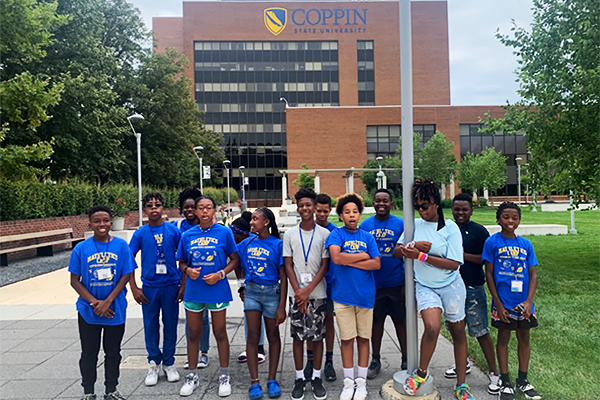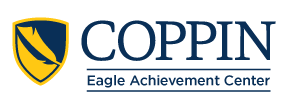Mathletics
Department of Mathematics and Computer Science
Mathletics
Mathletics 2025
About Mathletics

Mathletics is funded by the National Science Foundation (NSF) and designed to immerse middle grades youth (current 6th, 7th, & 8th graders) in the rapidly growing world of sports data analytics and build their knowledge of statistical concepts and the data science process. The program is particularly focused on engaging African American and Latinx youth, in an effort to deepen their STEM knowledge and introduce them to STEM fields. The 2024 Mathletics program will run only for the summer, July 8 through July 26.
The program is hosted by the Coppin State University Mathematics and Computer Science department.
Activities are led by Coppin faculty, local math teachers (high-school or college level) and Coppin undergraduate students majoring in a Science, Technology, Engineering, or Mathematics (STEM) field. Students not only learn practical skills, such as how to collect data and perform statistical analysis of the data but also engage in an end-of-camp, personal statistics project in a field of interest to them. The program exposes students to campus recreational activities, athletic coaches, and data collection and its use in decision making by sports teams.
Program Activities
- Mini sports combine and other informal sports activities for students where they engage in various sporting events, followed by performing statistical measurements on their times and measurements compared to other Mathletes
- Field trip to Washington Mystics basketball game where students collect statistical measurements of professional basketball players, followed by comparison of their measurements to those taken by the professional statisticians of the teams playing
- Recreation time at various local recreational facilities
- Trip to University of Maryland, College Park basketball arena Xfinity Center
- Interactions and presentations from athletic coaches on the importance and use of mathematics in athletics and coaching
- Gather and analyze survey data from Coppin students on campus
Apply to Mathletics
Applications now closed
Mathletics is open to students currently in grades 6, 7, or 8. The application is required and there is a $25 refundable registration cost to participate. The fee is due immediately after the student is accepted to the program.
Apply to Mathletics (Application Closed)
2024-2025 Cohort Dates
| Activity | Date(s) | Time |
|---|---|---|
| Applications | May - June 2024 | |
| Notification of Acceptance | May - June 2024 | |
| Camp | July 8, 2024 - July 26, 2024 (Monday-Friday) | 9:00am - 3:00pm |
Mathletics is funded by a grant from the National Science Foundation (NSF).
Any opinions, findings, and conclusions or recommendations expressed in this material are those of the authors and do not necessarily reflect the views of the National Science Foundation.








